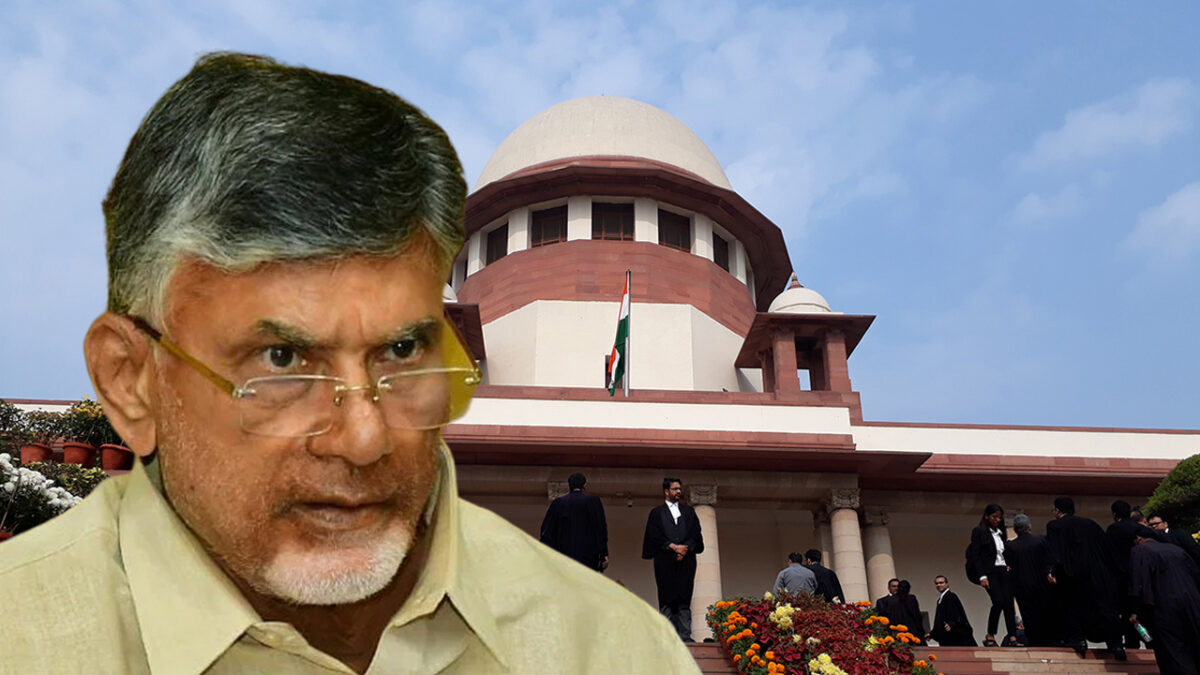The ’embezzlement’ lawsuit against Chandrababu Naidu falls outside of Section 17A protections, the Andhra Pradesh government claims before the Supreme Court.
Chandrababu Naidu’s petition alleges a coordinated campaign of vengeance by the government to derail the state’s largest opposition.
Table of Contents
The Supreme Court on Tuesday asked the government of Andhra Pradesh whether a trial court judgement remanding former Chief Minister N. Chandrababu Naidu will remain valid if corruption charges against him fail due to a lack of sanction under Section 17A of the Prevention of Corruption Act.
The Issue
The State claimed in the Supreme Court on Tuesday that the charges against Mr. Naidu in the skill development fraud case were “clear-cut” embezzlement and had nothing to do with his obligations as a public official.
Appearing before a Bench of Justices Aniruddha Bose and Bela M. Trivedi, senior lawyer Mukul Rohatgi and counsel Mahfooz A. Nazki representing the State, said Chandrababu Naidu cannot benefit from Section 17A of the Prevention of Corruption Act, which requires prior sanction for probe. The State said that the former Chief Minister had engaged in the scheme on purpose, incurring a massive loss to the finances.

Mr. Rohatgi contended that falsification of records and theft of cash do not constitute official duties under Section 17A.
Initially, a bench of Justices Aniruddha Bose and Bela M Trivedi considered remanding the case to the high court after Naidu’s counsel Harish Salve argued that the HC did not consider the argument that for inquiring into any decision taken by a public servant under the Prevention of Corruption Act, sanction from the competent authority is required under Action 17A of the Act.
Chandrababu Naidu’s Case Hearing
On Monday, the court ruled that Section 17A cannot be used to undermine the anti-corruption law’s basic purpose. The State also claimed that the cause of action and the investigation in the case predated the July 2018 implementation of Section 17A. According to Mr. Rohatgi, the immunity conferred by the provision cannot be invoked retroactively.
Chandrababu Naidu’s top counsel, Harish Salve, argued on Monday that Section 17A constituted a safeguard for public officials against regime retaliation.

The charge sheet alleges that Mr. Naidu “indulged in a criminal conspiracy with the intention of fraudulent misappropriation or otherwise conversion of government funds for his own use, disposal of property which was under the control of a public servant, besides engaging in cheating, forging documents and destroying evidence”
Supreme Court judges facts
Mr. Salve and senior advocate Siddharth Luthra contended that no approval was secured under Section 17A before immediately launching prosecution against Mr. Naidu by filing a FIR in the skill development fraud matter 21 months ago.
According to the lawyer, the TDP leader’s fundamental right was breached. His arrest was unlawful. Mr. Salve cited a recent Supreme Court decision that stated a remand order could be overturned if the arrest was improper.
According to Mr. Luthra, the clause went into effect on July 26, 2018. The investigation was launched in 2021 in response to a complaint filed on September 7, 2021, and the FIR was filed in December 2021. He highlighted that this FIR would undoubtedly be subject to the clause.
Mr. Naidu’s petition claimed a coordinated campaign of government retaliation to undermine the state’s main opposition.

Mr. Salve contended that the case included policy decisions endorsed by the State Cabinet and hence could not be prosecuted criminally. It was argued that the 360 crore allotment for the skill development initiative was included in the 2015-16 budget.
The High Court refused to dismiss the criminal charges filed against Mr. Naidu. It had also declined to vacate the Anti-Corruption Bureau (ACB) court’s remand decision.
Latest Hearing
The Supreme Court ruled that there was no “political vendetta” in the Chandrababu Naidu case.
During the nearly two-hour hearing, Justice Bose asked Andhra Pradesh’s Mukul Rohatgi whether the protective umbrella of section 17A could be applied retroactively.
On September 23, Naidu petitioned the Supreme Court, contesting an order of the Andhra Pradesh High Court denying his case for quashing the FIR filed against him in connection with the alleged scheme. While dismissing his appeal, the high court stated that criminal procedures should not be halted from the outset and that quashing a FIR should be the exception rather than the rule.
The petitions filed by former Andhra Pradesh Chief Minister Chandrababu Naidu will be heard by the Supreme Court today. A panel consisting of Justices Aniruddha Bose and Bela M Trivedi will hear Naidu’s motion to quash the FIR in the skill development fraud case. Since his arrest on September 10, he has been held in detention in the case.

He has also filed a special leave petition challenging the AP High Court’s decision to deny him anticipatory release in the Fibernet Scam case.



